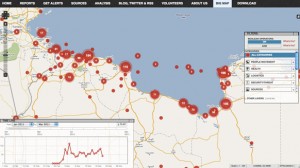Phi Beta Iota: A young man sought advice on whether to join the US secret intelligence world despite its many ethical issues and poor leadership. Below is the answer as provided to us by Robert Steele, to whom the email was addressed. The inquiring email is below the line.
This is simple. Continue with your plans to apply for a position with the US Government in secret intelligence. The easiest is via the military as an officer, and frankly, I recommend that because it gives you a unique grounding as a young leader, an understanding of the military mind-set, world travel, etcetera. Joining CIA directly if they take you (they are moderately desperate) has its prospects, but on balance, I would recommend that you invest four years as an officer on active duty, followed by four to eight years at CIA. Treat it as FUN, and a reality learning experience.
As simply as possible, as bad as they are, there is no substitute for the real experience and it is a privilege to work in secret intelligence, completely irrespective of how unethical and reality stupid its leaders might be.
I do NOT recommend the FBI, nor do I recommend the private sector. Think in terms of a 30-40 year career. Getting the clearances is much easier if you go in to government first, and they are worth $20K a year above and beyond normal salaries, should you choose to stay in the secret world.
Two key points:
1) One day we will create a Smart Nation, and those who fully understand both the benefits and the pathologies of secret intelligence will have an important role to play.
2) If you keep your own integrity, and treat this as a learning and observation experience, the loss of integrity by the US intelligence community leaders should not dissuade you from undertaking what is sure to be one of the most satisfying experiences of your life. Illusions and pathologies aside, secret intelligence is as cool as it gets, you will learn a great deal, and it will make you stronger for the future.
Happy to answer any additional questions. As long as you keep it in perspective, if you can get in, you should.
Semper Fidelis,
Robert
Continue reading “Letter to a Young Man: Join the Secret World”










